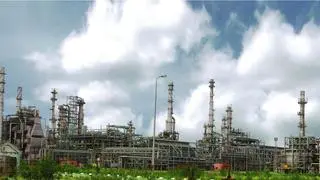Over the past fortnight, more than 50 people have been killed in two major accidents involving Volvo buses in the country. This has led to questions being raised about the safety of Volvo vehicles. In an interview with Business Line , Akash Passey , Senior Vice-President, Volvo Buses , shared the company’s action plan to deal with the current situation. Excerpts from the interview:
What is the current status of investigations being carried out by Volvo?
My colleague in the management team is on his way to India with 4-5 technical experts. We are here to look deeply into this. It is very difficult to say as of now what is right or wrong. Local teams have already visited both the sites. Global safety experts from Volvo are also joining us. You must understand that we were the first to bring bus chassis to build buses instead of building them on truck chassis.
We have trained nearly 9,000 drivers so far and continue to do so. Collaborative efforts are needed to bring down accident rates. At the same time, it is important to look into the conditions under which drivers drive. If the regulation says there should be two emergency exits, we have, in fact, four. In multi-axle buses, there are 12 large windows and 80 per cent of them are breakable with a reasonable amount of force and so also is the windscreen. We have made it safer and easier for drivers to handle the buses more efficiently by introducing better technology.
There have been issues regarding fire in fuel tanks…
You can take any standard bus and you will find that fuel tanks do not burst. Our design is the same as in 100 other countries we operate in. It is a rotorbound plastic tank without joints. Also, diesel is not highly inflammable unless you take into consideration refinery quality (from where the diesel is sourced). There are two parts to the safety issue: There there are 10 features as far as active safety is concerned, which means what you can do to prevent accidents.
Then there are 10 passive features, which means what you can do to prevent another similar accident. Then, in addition to the regulations, we have about 30 features in active and passive safety. In the short term, we are talking to all the key operators to highlight to them the safety features and what needs to be done.
We understand the Indian Government is sending an investigating team to Volvo to look into these accidents…
Yes. We are absolutely open to talking to them and collaborating with them. It is in the best interest of both of us.
Are the engines fitted into your buses more powerful than what they generally are, taking Indian conditions into consideration?
We operate in 100 countries, often in much worse conditions. When it comes to the issue of the right engine, it has more to do with the power-to-weight ratio. We know the road conditions in India. I don’t think that is really the cause. We meet all the regulations and, if something needs to be done, we will be happy to do that as well.
Bus operators, especially those whose vehicles were involved in the accidents, claim that Volvo buses are technically flawed…
It is very human to make these charges. But our concern is not about who we should take behind bars but to prevent such accidents in future. I don’t agree that Volvo buses have any technical flaws. There are 5,000 buses running in the country right now and for several years now. But there cannot be a single reason. I have heard about driver fatigue as one of the reasons. We need to look at various issues so that such accidents don’t happen again.
How has Volvo Buses fared in the country? Because of these accidents, are operators now looking at delaying taking deliveries or are they postponing placing orders?
There has been a recession in the industry and it has affected us as well. But we still have a 75 per cent market share in the country. Out of the 5,000 buses we have so far sold, 3,000 are inter-city buses. No operator has called us up suspending orders so far but we are in touch with them and educating them about safety standards. Once the investigation is completed, we will share the report with the authorities and will work with all the stakeholders to see to it that we do not have such incidents again.
> giriprakash.k@thehindu.co.in








Comments
Comments have to be in English, and in full sentences. They cannot be abusive or personal. Please abide by our community guidelines for posting your comments.
We have migrated to a new commenting platform. If you are already a registered user of TheHindu Businessline and logged in, you may continue to engage with our articles. If you do not have an account please register and login to post comments. Users can access their older comments by logging into their accounts on Vuukle.